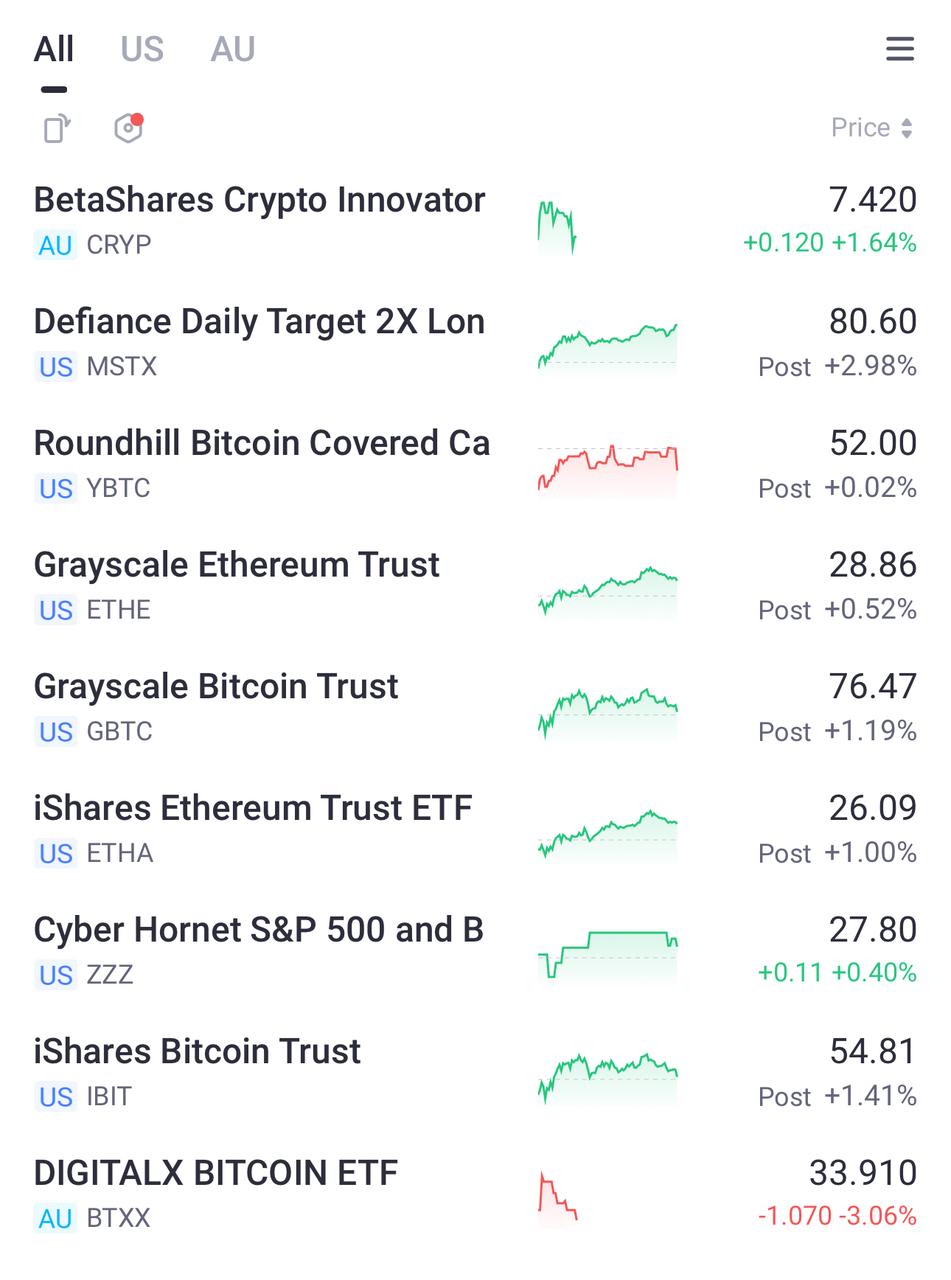Are you curious about cryptocurrency but feeling a bit overwhelmed by all the buzz? Maybe you've heard it's the future of money, or perhaps you're wondering if it's worth investing in—or just a passing trend. Either way, you're not alone. Crypto has taken the world by storm, offering a fresh take on how we think about money and investments.
Cryptocurrency, or crypto, is a digital currency designed as an alternative payment method and speculative investment. Unlike traditional fiat currencies, which are issued and regulated by governments or banks, crypto operates on decentralised systems using blockchain technology—a public ledger that securely records and verifies transactions.
Introduced in 2009 following the financial crisis, cryptocurrencies offer an independent, peer-to-peer system that eliminates intermediaries like banks. Their value is driven by supply and demand, often supported by fixed or limited token supplies. Beyond payments, crypto has become a viable investment, similar to gold, and is viewed as a hedge against fluctuations in traditional financial systems.
Take Bitcoin, for example. It's not just the first cryptocurrency but also the most well-known. It functions as both a digital currency and an investment asset. It operates on a decentralised network, enabling peer-to-peer transactions without banks or intermediaries. Bitcoin's value is influenced by supply and demand, with a fixed total supply of 21 million coins, making it a scarce digital asset. As a medium of exchange and store of value, Bitcoin has gained popularity as an investment, often seen as a hedge against inflation and an alternative to traditional markets and currencies.
Pros and Cons of Cryptocurrency
Like any investment opportunity, investors need to weigh up the pros and cons. We've listed a few below, to assist you in your decision making. Please note that this isn't a definitive list and you should always do further research and seek further advice if needed.
Pros
Decentralisation: Operates without government or central authority, appealing to those seeking financial independence.
Inflation Protection: Fixed supply limits inflation compared to fiat currencies.
Accessibility & Inclusivity: Open to anyone with internet access, benefiting underserved populations without requiring extensive documentation.
Global Reach: Seamless local and international transfers without currency exchange fees.
Low Costs: Fewer intermediaries mean reduced transaction fees.
Privacy & Security: No personal data is required; blockchain ensures anonymity and tamper resistance.
Passive Income: Staking offers rewards for verifying transactions.
Unrestricted Usage: No limits on transaction amounts or frequency.
High Return Potential: Volatility provides opportunities for significant gains.
Cons
Volatility: Prices fluctuate sharply, leading to potential losses.
No Inherent Value: Value is speculative and not tied to tangible assets.
Environmental Impact: Energy-intensive mining harms the environment.
Complexity: Difficult for non-experts to understand or adopt.
Legal Uncertainty: Bans or restrictions in some countries limit adoption.
Security Risks: Susceptible to phishing, hacking, and scams; private key loss can result in fund loss.
Transactional Issues: Pseudonymity can enable illegal activity; some networks are inefficient.
Uncertain Viability: Many projects fail or lack long-term adoption.
Trading Cypto Etfs
Cryptocurrency ETFs give investors a way to access digital assets like Bitcoin or Ethereum without owning them outright. Traded on traditional stock exchanges, these funds provide a straightforward, regulated option for engaging with the crypto market, using standard brokerage accounts and avoiding the need for wallets or cryptocurrency exchanges.
Approved in early 2024, crypto ETFs act as a link between traditional finance and the evolving world of digital currencies. They simplify crypto investing but often carry higher fees. Additionally, while the funds themselves are regulated, the underlying crypto markets remain largely unregulated, which can expose investors to risks like fraud and market manipulation.
For those keen to tap into the growth of the cryptocurrency sector, crypto ETFs offer a practical and regulated alternative to direct trading, combining the familiarity of traditional finance with the innovative opportunities of digital assets.
Types of Crypto ETFs
When exploring cryptocurrency ETFs, investors can tailor their choices based on preferences and risk appetite. These ETFs are broadly categorised into single-asset, multi-asset, and industry ETFs. Each of these categories can further be classified into spot and future ETFs.
Spot Crypto ETFs provide a direct link to the cryptocurrency market by tracking the live price of the underlying assets, making them a popular choice for investors looking to capitalise on immediate price movements.
Futures Crypto ETFs, however, offer exposure to cryptocurrency markets via contracts set for future execution. These may be suited to investors seeking to reduce the impact of short-term market fluctuations while still engaging with the cryptocurrency space.
Note: This article aims to inform readers about the different crypto ETF options. However, our platform currently offers spot cryptocurrency ETFs and does not facilitate futures trading.
Examples of crypto ETFs available on the stock market
You can trade these ETFs and more through the Tiger Trade app. You can also watch our exclusive webinar with DigitalX discussing Cryptocurrency ETFs and their ETF (BTXX) here.
Data Tiger Trade app as of 23/12/24 at 11:30 am AEST. Past performance is no guarantee of future results. Graphics and charts are for illustrative purpose only.
Before investing in crypto ETFs, evaluating your investment goals, risk tolerance, and overall financial strategy is important. These ETFs are better suited for investors who are comfortable with market volatility and want exposure to the cryptocurrency market's growth potential without directly owning digital assets.
Be sure to research the ETF's holdings, expense ratio, investment strategy, and associated risks. Start with a small investment, especially if you're new to crypto. Diversify your portfolio to avoid over-concentration in crypto ETFs, including other asset classes like stocks, bonds, and real estate to reduce risk.
Consider the regulatory environment of the ETF and ensure it aligns with your investment horizon and goals. Pay attention to fees and market conditions, as they can impact returns. Staying informed about broader crypto trends will also help you make well-informed decisions.
Cryptocurrency and the stock market each offer distinct opportunities. Crypto provides decentralisation and high return potential, while ETFs and stocks offer a regulated and accessible way to gain market exposure. However, both come with risks, including volatility and security concerns, which require careful strategy and consideration.
To manage your investments seamlessly and explore diverse markets, download the Tiger Trade app and start your investment journey.
Crypto ETFs are only intended for investors who understand and accept the high risks involved in investing in a product with cryptocurrency exposure. You should always closely monitor your position due to high price volatility of the underlying cryptocurrencies. See crypto ETF’s PDS/prospectus, TMD and other disclosure documents before trading. Information provided may contain general advice without taking into account your objectives, financial situations or needs. Tiger Brokers (AU) Pty Limited AFSL 300767.



